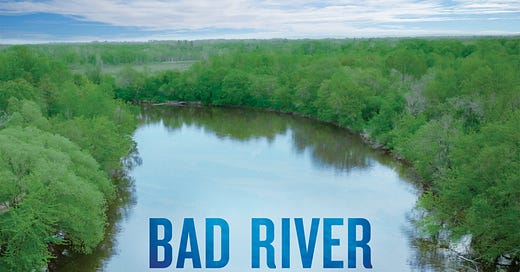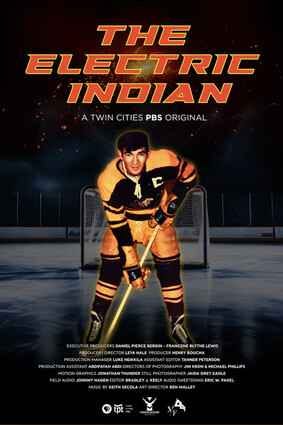When
asked what films I’d recently seen that left a deep impression, three popped up like movie posters in my mind. Each told a story that added pieces to my puzzle of this place to which I have a fierce attachment.Twin Cities PBS broadcast a new documentary about Warroad’s Ojibway Olympian Henry Boucha last week. It’s now available for streaming at pbs.org here. Directed by Leya Hale (Sisseton Wahpeton Dakota and Diné) and with musical score by Keith Secola*, the film is a tribute to Warroad’s hockey legend.
The Electric Indian begins and ends in Henry Boucha’s hometown because the film is about this community even more than it is about hockey. You don’t need to be a sports fan to enjoy watching the natural beauty of the landscape and listening to the people of this place.
You may recall this post about Henry Boucha and what role he played in retaining the use of the Warroad Warriors as the public high school mascot and logo.
The second movie is available on Netflix until March 31. That’s today! It’s the film adaptation of a novel written by Richard Wagamese, an Ojibway Canadian author.
Set in Ontario, Saul Indian Horse is a young Ojibway boy who gets scooped up and placed in a religious boarding school. The film portrays the harsh conditions and abusive treatment of Indian children. A young priest takes Saul under his wing and introduces him to hockey. It becomes his ticket out. He finds his way on the rink but the more success he has on skates, the more racism he encounters.
If you haven’t seen the film, today is your last day it’s available to stream on Netflix. (Or, it is available on Google Play or Apple TV.) Better yet, read the book. Your public library may have both.
The third film I saw on a big screen at my local movie theater last weekend.
Bad River is a new documentary directed by Mary Mazzio (“I Am Jane Doe” and “A Most Beautiful Thing”). It’s about the epic struggle of the Bad River Band of Lake Superior Chippewa in northern Wisconsin to retain their sovereignty and treaty rights. It starts with the Treaty of 1854, but it’s a current struggle.
The Bad River Band fought and won in federal court in 2022 against Enbridge, a Canadian oil company, whose pipeline trespasses on reservation land. Enbridge has generated more than $1 billion in profits from this pipeline since 2013 when its land contracts expired. The judge ordered Enbridge pay the tribe $5.1 million for trespassing.
The pipeline poses a significant threat — “imminent rupture” — to the watershed of Lake Superior and when (not if) it breaks, the results will be catastrophic. Judge Conley of the US District Court found “conditions near the pipeline created an unreasonable risk of failure” and ordered Enbridge to remove the 70-year-old pipeline within three years. Enbridge continues to appeal the decision.
The audience here in Appleton applauded at the end of the film. I can’t remember the last time that happened. Check your local listings as its theatrical run has been extended in many cities due to audience interest.
I hope you enjoy the films!
*Keith Secola is an Ojibway musical recording artist from Cook, Minnesota. Hearing him and his band perform at the Grass Roots Music Festival in Trumansburg, NY, in 1997 remains a joyous memory. Keith Secola has been a regular performer at this annual event and is scheduled to play again this summer. His son, Keith Secola, Jr. is an artist whose work I saw a couple years ago at the Trout Museum of Art in Appleton in the exhibit “Reclaiming Identity,” guest-curated by Dakota Mace.







I am very grateful for all you are researching and sharing with us about the Indian culture. This is so important for us to know. I feel like late in my life I am being exposed to so much "real" history. I wish I had been taught these things as a younger person.
Thank you for continuing to write these posts, Jill. And CONGRATS on your pub in Thunderbird Review. Ever inspired …